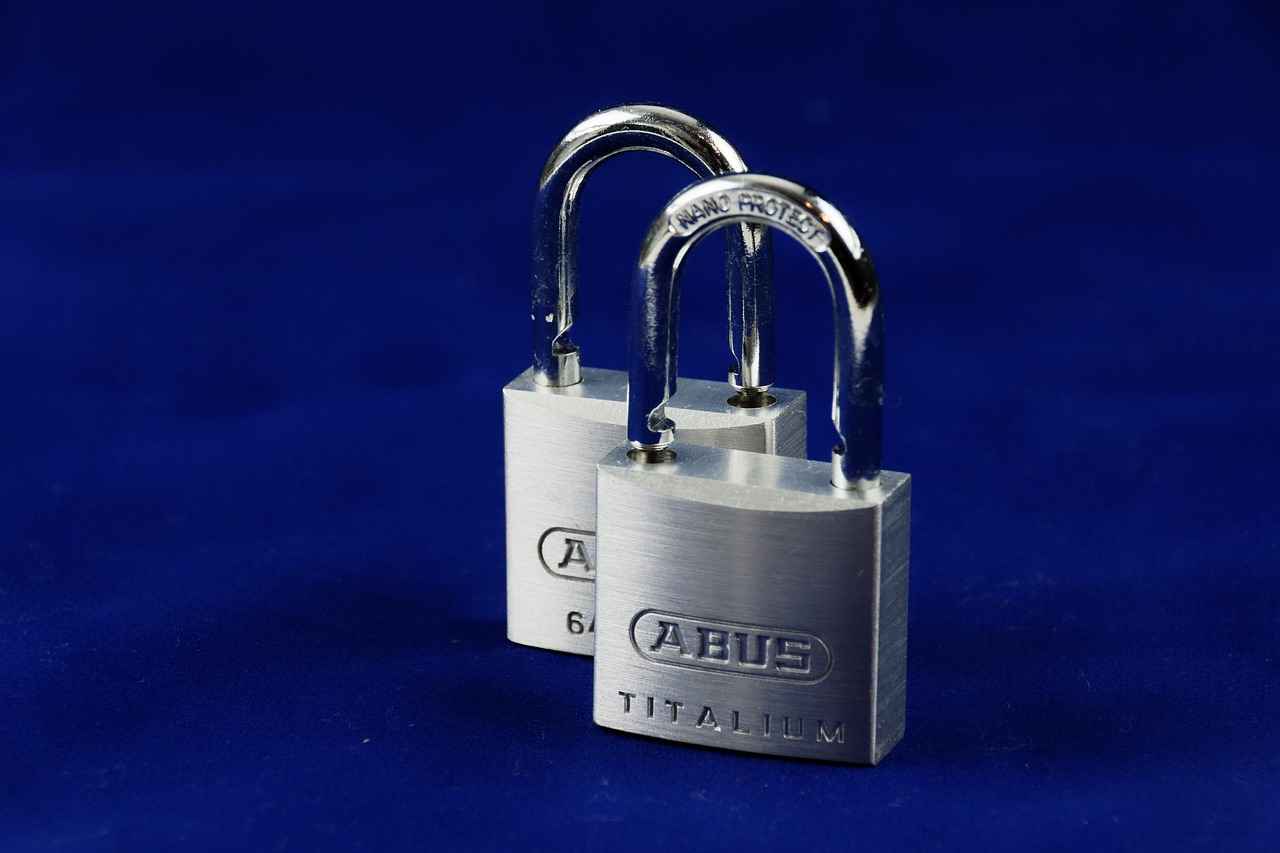The 2017 Honda Accord has gained popularity for its reliability and performance. However, one of the growing concerns among owners is the vulnerability of its catalytic converter to theft. This article delves into the reasons for such thefts, preventative measures, and the implications for owners.
Catalytic converters are highly sought after due to the precious metals they contain, such as platinum, palladium, and rhodium. These metals have significant market value, making catalytic converters prime targets for thieves. The theft of these components is often driven by the lucrative resale market, where stolen converters can fetch hundreds of dollars.
The design of the 2017 Honda Accord contributes to its vulnerability. The placement of the catalytic converter is relatively accessible, allowing thieves to remove it quickly with minimal tools. Furthermore, the high demand for parts from this model increases the likelihood of theft, especially in urban areas where crime rates are higher.
The market value of a catalytic converter can vary significantly, often ranging from $300 to $1,500 depending on the model and condition. Knowing the worth of the 2017 Honda Accord’s catalytic converter can illuminate the motivations behind its theft. Thieves are more likely to target vehicles with high-value converters, and the Accord fits this criterion.
- Unusual Noises: A loud rumbling or hissing sound when starting the vehicle can indicate theft.
- Decreased Performance: A noticeable drop in acceleration or power may suggest that the catalytic converter has been removed.
- Dashboard Warning Lights: The check engine light may illuminate if the vehicle’s exhaust system is compromised.
Implementing preventative measures is crucial for protecting your vehicle. Here are some effective strategies:
- Park Smart: Always park in well-lit, secure areas or garages.
- Install a Catalytic Converter Lock: These devices can deter thieves by making removal more difficult.
- Engrave Your VIN: Marking your catalytic converter with your vehicle identification number can help law enforcement track stolen parts.
Understanding the legal consequences of catalytic converter theft is essential for both thieves and victims. Laws vary by state, but typically, theft can lead to severe penalties, including fines and imprisonment. Victims may also face challenges in recovering stolen property, highlighting the importance of reporting theft promptly.
If your catalytic converter is stolen, knowing how to report the theft is vital. Follow these steps:
- Contact Local Authorities: Report the theft to the police as soon as possible.
- Gather Evidence: Take photos of the vehicle and any relevant surroundings to assist in the investigation.
- Notify Your Insurance Company: File a claim if your policy covers theft.
Immediate actions following the theft of a catalytic converter can mitigate losses. Ensure your safety first, then follow the reporting procedures. Consider seeking assistance from a mechanic to assess any further damage to your vehicle.
Many insurance policies cover catalytic converter theft, but coverage can vary. It’s essential to review your policy details and consult with your insurance agent to understand your options and any necessary steps for filing a claim.
Aftermarket solutions can enhance your vehicle’s security against catalytic converter theft. Products such as catalytic converter shields and alarms can deter thieves effectively. Investing in these solutions can provide peace of mind and protect your investment.
The theft of catalytic converters has broader environmental implications. These devices play a crucial role in reducing harmful emissions. When stolen, vehicles may operate without them, leading to increased pollution and environmental degradation.
Recent trends indicate a significant rise in catalytic converter thefts across the country. Awareness of these trends can help owners stay informed and proactive in protecting their vehicles.

Why Are Catalytic Converters Targeted for Theft?
Catalytic converters have become prime targets for thieves in recent years, and understanding the reasons behind this trend is crucial for vehicle owners. These components are essential for reducing harmful emissions from vehicles, but they also contain valuable precious metals such as platinum, palladium, and rhodium. The rising prices of these metals have made catalytic converters incredibly lucrative on the black market, prompting a surge in thefts across various vehicle models.
The value of a catalytic converter is primarily derived from the precious metals it contains. As the demand for these metals increases in various industries, so does their market price. For instance, the price of rhodium has skyrocketed in recent years, making catalytic converters an attractive target for thieves. Each converter can contain a few grams of these metals, translating to hundreds or even thousands of dollars in potential profit for criminals.
Not all vehicles are equally targeted. Some models, like the 2017 Honda Accord, are particularly vulnerable due to their design and the accessibility of their catalytic converters. Thieves often look for vehicles that are easy to access and have converters that can be removed quickly. The Honda Accord, being a popular model, has a high demand for its parts, making it a prime target.
Understanding the motivations behind catalytic converter theft can help vehicle owners take proactive measures. Here are several strategies that can be implemented:
- Parking Location: Always park in well-lit, busy areas. Thieves are less likely to attempt theft in locations with high foot traffic.
- Physical Security: Consider installing a catalytic converter lock or cage, which can deter thieves by making removal more difficult.
- Identification Marking: Marking your catalytic converter with a unique identifier can help law enforcement track it if stolen.
- Alarm Systems: Installing an alarm system that triggers when your vehicle is tampered with can serve as a strong deterrent.
Being aware of the signs of catalytic converter theft can help you react quickly. Common indicators include:
- Unusual Noises: If you hear a loud rumbling sound when starting your vehicle, it may indicate that your catalytic converter has been removed.
- Decreased Performance: A sudden drop in your vehicle’s performance or an increase in emissions can signal that your catalytic converter is missing.
Understanding the legal consequences of catalytic converter theft is essential for both thieves and victims. In many jurisdictions, theft of a catalytic converter is considered a serious crime, often leading to felony charges. Victims of such thefts should report the incident to local law enforcement to help combat this growing issue.
The theft of catalytic converters has broader implications beyond personal loss. These components play a critical role in reducing harmful emissions. When they are stolen and not replaced, vehicles can emit higher levels of pollutants, contributing to air quality issues.
In conclusion, understanding why catalytic converters are targeted for theft can empower vehicle owners to take preventative measures. By being informed and proactive, you can significantly reduce the risk of becoming a victim of this crime.

What Makes the 2017 Honda Accord a Target?
The 2017 Honda Accord has gained a reputation as a prime target for catalytic converter theft, and several factors contribute to this troubling trend. Understanding what makes this vehicle particularly vulnerable can help owners take proactive measures to protect their property.
One of the main reasons the 2017 Honda Accord is susceptible to theft is its design. The placement of the catalytic converter in this model makes it easily accessible to thieves. Unlike some vehicles where the converter is tucked away and requires more effort to remove, the Accord’s design allows for quick and easy access, making it a prime target.
Catalytic converters contain precious metals such as platinum, palladium, and rhodium. These metals are highly valuable in the recycling market, which drives the demand for stolen converters. The 2017 Honda Accord is particularly attractive to thieves due to the high concentration of these metals in its catalytic converter. This makes it more lucrative for thieves to steal from this model than from others.
The market value of a catalytic converter can fluctuate, but those from the 2017 Honda Accord have been reported to fetch a high price on the black market. This financial incentive encourages theft, as criminals can profit significantly with minimal risk involved. Understanding the worth of your vehicle’s components can shed light on why certain models are targeted more than others.
Owners should be aware of the signs that their catalytic converter may have been stolen. Common indicators include:
- Unusual noises: A loud rumbling sound when starting the vehicle can suggest the absence of a catalytic converter.
- Decreased performance: A noticeable drop in engine performance or acceleration can signal theft.
- Warning lights: Dashboard warning lights may illuminate, indicating issues with the exhaust system.
To mitigate the risk of theft, owners can implement several strategies:
1. Park in well-lit areas or secure garages.2. Install a catalytic converter lock or shield.3. Utilize a vehicle alarm system that detects vibrations.4. Etch the vehicle identification number (VIN) on the converter to deter thieves.
Understanding the legal consequences of catalytic converter theft is crucial for both thieves and victims. In many jurisdictions, stealing a catalytic converter is considered a felony, which can lead to severe penalties. Victims should report the theft to the authorities promptly to aid in recovery efforts.
Many insurance policies may cover catalytic converter theft, but coverage can vary. It’s essential for owners to review their policies and understand their options. Speaking with an insurance agent can clarify what is covered and how to file a claim if theft occurs.
Investing in aftermarket solutions can provide an additional layer of protection against theft. Some popular options include:
- CatClamp: A device designed to secure the catalytic converter in place.
- GPS tracking systems: These can help locate stolen vehicles quickly.
- Exhaust system modifications: Altering the exhaust system can make it harder for thieves to access the catalytic converter.
In summary, the 2017 Honda Accord is particularly vulnerable to catalytic converter theft due to its design and the high demand for its precious metals. By understanding the risks and implementing preventive measures, owners can better protect their vehicles from this growing crime.

How Much Is a 2017 Honda Accord Catalytic Converter Worth?
The value of a catalytic converter can fluctuate based on various factors, and understanding the worth of the 2017 Honda Accord’s catalytic converter is crucial for vehicle owners. This knowledge not only sheds light on the motivations behind theft but also aids in making informed decisions regarding protection and insurance.
The market value of a catalytic converter is primarily determined by the precious metals it contains, such as platinum, palladium, and rhodium. These metals are essential for reducing harmful emissions, which makes catalytic converters a hot commodity in the black market. The demand for these metals can fluctuate based on market trends, affecting the overall value of the component.
As of now, the market value for a 2017 Honda Accord catalytic converter can range from $800 to $2,000, depending on various factors such as condition, mileage, and the regional market. The specific model and its emissions standards also play a significant role in determining its worth. For instance, converters from vehicles that meet stricter emissions regulations may fetch a higher price due to their advanced technology and materials.
The 2017 Honda Accord is known for its reliability and efficiency, making it a popular choice among consumers. The demand for replacement parts, particularly catalytic converters, increases as these vehicles age. Additionally, the design of the Accord allows for relatively easy access to the catalytic converter, making it an attractive target for thieves looking to capitalize on its high resale value.
- Research Current Prices: Check online marketplaces and scrap yards to get a sense of the current market rates.
- Consult Professionals: Mechanics and automotive professionals can provide insights into the value based on your specific vehicle’s condition.
- Use Online Tools: Websites that specialize in catalytic converter pricing can offer estimates based on your vehicle’s make and model.
Given the high value of the 2017 Honda Accord catalytic converter, owners should be aware of the risks of theft. Thieves often target vehicles that are easy to access and have valuable parts. Awareness of this issue can prompt owners to take preventive measures to protect their vehicles.
Implementing security measures is essential. Here are some strategies:
- Install a Catalytic Converter Lock: These locks can deter thieves by making it more difficult to remove the converter.
- Park Smart: Always park in well-lit areas, preferably in garages or secure lots.
- Engrave Your VIN: Marking your catalytic converter with your vehicle identification number can help recover it if stolen.
Understanding the worth of your 2017 Honda Accord’s catalytic converter is not just about knowing its market value; it also helps in recognizing the potential threats of theft and the importance of taking preventative measures. By being informed and proactive, owners can protect their investments and ensure their vehicles remain safe.

What Are the Signs of Catalytic Converter Theft?
The rising incidence of catalytic converter theft has left many vehicle owners concerned about the security of their cars. Understanding the signs of catalytic converter theft is crucial for timely intervention and protection of your vehicle. This section will delve into the common symptoms that indicate potential theft, allowing owners to act swiftly.
- Unusual Noises: One of the first indicators of catalytic converter theft is an unexpected loud noise coming from the exhaust area. If you notice a loud rumbling or hissing sound, it could mean that the catalytic converter has been removed.
- Decreased Vehicle Performance: A significant drop in your vehicle’s performance, such as sluggish acceleration or reduced power, may indicate that the catalytic converter is missing. This component plays a vital role in your vehicle’s exhaust system, and its absence can lead to poor performance.
- Check Engine Light: If your check engine light suddenly illuminates, it could be a sign of a problem related to the catalytic converter. While this light can signify various issues, it’s essential to investigate further if you suspect theft.
- Visible Signs of Tampering: Regularly inspect your vehicle for any signs of tampering or damage, particularly around the exhaust system. Scratches, cuts, or loose parts may indicate that someone has attempted to steal the catalytic converter.
- Unusual Exhaust Fumes: If you notice a strong smell of sulfur or rotten eggs, it could indicate a malfunctioning catalytic converter. While this might not directly indicate theft, it’s worth checking if the converter is intact.
Reacting quickly to these signs can make a significant difference in preventing further damage to your vehicle and mitigating the financial loss associated with theft. If you suspect that your catalytic converter has been stolen, it’s essential to report the incident to the authorities and your insurance company immediately.
Being aware of the signs is just one part of the solution. Owners should also take proactive measures to safeguard their vehicles. Consider parking in well-lit areas, using physical barriers, or installing an alarm system to deter thieves.
In conclusion, recognizing the signs of catalytic converter theft is vital for vehicle owners. By staying vigilant and informed, you can protect your investment and ensure the safety of your vehicle.

How to Protect Your Honda Accord from Catalytic Converter Theft?
The increasing incidence of catalytic converter theft has left many vehicle owners, particularly those with a 2017 Honda Accord, feeling vulnerable. As these components contain precious metals, they are highly sought after in the black market. Thus, understanding how to protect your vehicle is essential for maintaining its integrity and value.
The catalytic converter plays a vital role in your vehicle’s exhaust system, helping to reduce harmful emissions. When stolen, not only does it lead to costly repairs, but it also compromises your vehicle’s performance. Therefore, implementing preventive measures is crucial for protecting your investment.
- Park in Well-Lit Areas: Always choose parking spots that are well-lit and visible to passersby. Thieves prefer dark, secluded areas where they can operate unnoticed.
- Use Secure Parking Facilities: Whenever possible, park in secure garages or lots that offer surveillance and security personnel.
- Avoid Parking Near Highways: Thieves often target vehicles near busy roads for quick getaways. Opt for safer, less accessible locations.
Investing in physical barriers can significantly enhance your vehicle’s security:
- Catalytic Converter Locks: These specialized locks can be installed to secure the catalytic converter to the vehicle, making it more difficult for thieves to remove.
- Alarm Systems: Consider installing a comprehensive alarm system that includes motion sensors. This can alert you to any unauthorized tampering.
- Metal Shields: Installing a metal shield can act as a deterrent, making it harder for thieves to access the catalytic converter quickly.
Engaging with your community can also play a pivotal role in preventing theft:
- Neighborhood Watch Programs: Join or initiate a neighborhood watch program to increase vigilance and awareness about suspicious activities.
- Share Information: Communicate with fellow Honda Accord owners about theft incidents and share tips on prevention.
Conducting regular maintenance can help you spot potential vulnerabilities:
- Routine Inspections: Frequently check your vehicle for any signs of tampering or damage, especially after parking in unfamiliar areas.
- Professional Checks: Schedule professional inspections that include checking the exhaust system to ensure everything is secure.
While implementing preventive measures is crucial, also consider your insurance options:
- Check Your Coverage: Review your insurance policy to see if it covers theft of the catalytic converter. This can provide peace of mind in case of an unfortunate incident.
- Consider Additional Coverage: If your policy doesn’t include coverage for this type of theft, consider adding it for enhanced security.
By employing these strategies, you can significantly reduce the risk of catalytic converter theft on your 2017 Honda Accord. Being proactive and vigilant not only protects your vehicle but also contributes to a safer community.

What Are the Legal Implications of Catalytic Converter Theft?
Understanding the legal implications of catalytic converter theft is crucial for both thieves and victims. As this crime has surged in recent years, so too have the laws and penalties associated with it. This section delves into the legal framework surrounding catalytic converter theft, the consequences faced by offenders, and the rights of victims.
In many jurisdictions, catalytic converter theft is classified as a felony due to the value of the stolen property and the potential for harm to vehicle owners. Thieves often target these components because they contain precious metals such as platinum, palladium, and rhodium, making them highly lucrative on the black market. The consequences for those caught stealing catalytic converters can be severe, ranging from hefty fines to significant prison time.
For instance, in some states, the penalty for stealing a catalytic converter can include a prison sentence of several years, especially if the offender has prior convictions. Additionally, the value of the stolen property can elevate the crime to a higher degree, resulting in more stringent penalties. This legal approach aims to deter potential thieves by emphasizing the seriousness of this offense.
Victims of catalytic converter theft also have legal rights. They can report the crime to law enforcement, and if the thief is apprehended, they may have the opportunity to seek restitution for damages incurred. Furthermore, many states have enacted laws requiring scrap yards to keep detailed records of transactions involving catalytic converters, thereby making it more challenging for thieves to sell their stolen goods without being traced.
Moreover, insurance policies may cover losses from catalytic converter theft, depending on the policy specifics. Vehicle owners are encouraged to review their coverage and understand the claims process, as this can significantly impact their financial recovery after such incidents.
The rise in catalytic converter theft has also prompted lawmakers to consider new legislation aimed at curbing these crimes. Proposed measures may include stricter penalties for offenders, increased surveillance and tracking of scrap metal sales, and public awareness campaigns to educate vehicle owners about preventive measures.
In summary, the legal implications of catalytic converter theft are multifaceted, affecting both the perpetrators and the victims. Understanding the laws and potential penalties can help deter theft and empower victims to take action. As this issue continues to evolve, staying informed about your rights and responsibilities is essential.

How to Report Catalytic Converter Theft?
If you discover that your catalytic converter has been stolen, it’s important to act quickly and efficiently. Reporting the theft properly not only increases the chances of recovery but also helps law enforcement track and combat this growing crime. Below are the essential steps to take when reporting catalytic converter theft.
- Document the Theft: Before you do anything else, take a moment to document the scene. Use your smartphone to take clear pictures of the area where your vehicle was parked, as well as any damage caused by the theft. This evidence can be crucial when filing a police report and dealing with your insurance.
- Contact Local Law Enforcement: The first official step is to report the theft to your local police department. Provide them with all relevant information, including your vehicle’s make, model, year, and VIN (Vehicle Identification Number). Be sure to mention that a catalytic converter was stolen, as this detail may help them prioritize your case.
- File a Police Report: After contacting law enforcement, you will need to file a formal police report. This document is essential for insurance claims and can sometimes aid in the recovery of your stolen property. Ensure you get a copy of the report for your records.
- Notify Your Insurance Company: Contact your insurance provider as soon as possible to report the theft. Depending on your policy, they may cover the cost of replacement. Provide them with a copy of the police report and any documentation you gathered.
- Check with Local Scrap Yards: Catalytic converters are often sold to scrap yards. Contact local scrap yards and inform them of the theft. Some may keep a record of transactions and could alert you if someone attempts to sell your stolen converter.
- Monitor Online Marketplaces: Keep an eye on online platforms where stolen parts may be sold. Websites like Craigslist or Facebook Marketplace can sometimes have listings for stolen catalytic converters. If you find your part, report it to the police immediately.
- Follow Up: Stay in touch with the police department regarding your case. Regular follow-ups can keep your case active and may help you receive updates on any developments.
It’s crucial to remain vigilant after reporting the theft. Consider implementing security measures to prevent future thefts, such as parking in well-lit areas, installing a catalytic converter lock, or using a vehicle alarm system. Protecting your investment is key, especially in light of the rising rates of catalytic converter theft.
In summary, if your catalytic converter is stolen, the steps you take immediately can significantly impact the recovery process. From documenting the theft to notifying the police and your insurance company, each action is vital. By staying proactive and informed, you can navigate the aftermath of this unfortunate event more effectively.

What Should You Do If Your Catalytic Converter Is Stolen?
Experiencing the theft of your vehicle’s catalytic converter can be a distressing situation. It not only affects your car’s performance but can also lead to significant financial losses. Taking immediate actions following the theft is crucial to mitigate these losses and ensure your safety. Here are some practical steps to guide you through this challenging time.
- Ensure Your Safety: Before anything else, make sure you are in a safe location. If you discover the theft in a public area, move to a secure spot away from traffic.
- Assess the Damage: Carefully inspect your vehicle to determine the extent of the theft. Look for any signs of tampering or damage to the exhaust system.
- Document Everything: Take clear photographs of the damage and the area where your vehicle was parked. This documentation will be valuable for insurance claims and police reports.
- Contact the Authorities: Report the theft to the police as soon as possible. Provide them with all necessary details, including your vehicle identification number (VIN) and any evidence you have gathered.
- Notify Your Insurance Company: Reach out to your insurance provider to report the theft. They will guide you through the claims process and inform you about what is covered under your policy.
- Check Local Scrap Yards: Since stolen catalytic converters are often sold to scrap yards, consider contacting local scrap dealers to report the theft and see if they have any information.
- Monitor Online Marketplaces: Keep an eye on online platforms where parts are sold. If you spot your catalytic converter or any suspicious listings, report them to the authorities.
Additionally, it’s important to inform your local community about the theft. Share your experience on social media and neighborhood apps to alert others. This can help prevent further thefts in your area.
After taking these immediate actions, consider implementing preventive measures to protect your vehicle in the future. Installing a catalytic converter lock or alarm system can deter thieves and provide peace of mind.
While the theft of a catalytic converter can be a significant inconvenience, acting quickly and efficiently can help you recover from the incident and protect your vehicle from future thefts.

Are There Insurance Options for Catalytic Converter Theft?
The rising incidence of catalytic converter theft has left many vehicle owners concerned about potential financial losses. Understanding insurance options available for such thefts can help mitigate the impact and prepare for unexpected expenses. In this article, we will delve into the intricacies of insurance coverage regarding catalytic converter theft, providing valuable insights for Honda Accord owners and others alike.
What Types of Insurance Might Cover Catalytic Converter Theft?
- Comprehensive Coverage: Many insurance policies include comprehensive coverage, which typically protects against theft and vandalism. If you have this type of coverage, your insurer may reimburse you for the loss of your catalytic converter.
- Collision Coverage: While primarily intended for accidents, collision coverage may also apply in specific scenarios, particularly if the theft occurs during an incident involving another vehicle.
- Specialized Auto Insurance: Some insurers offer specialized policies that focus on high-theft vehicles or provide additional coverage for parts like catalytic converters.
Why Is It Important to Review Your Policy?
Not all insurance policies are created equal. It is crucial for vehicle owners to review their insurance policies to understand what is covered. Many policies have specific exclusions or limitations regarding theft. For example, some might require that the vehicle be parked in a secured location for coverage to apply. Additionally, understanding your deductible is essential, as it will affect your out-of-pocket expenses when filing a claim.
How Can You Prepare for Potential Claims?
Preparation is key when it comes to navigating insurance claims effectively. Here are some practical steps:
- Document Your Vehicle: Keep detailed records of your vehicle’s VIN, make, model, and any modifications. Photographs can also serve as crucial evidence.
- Maintain an Inventory: Create an inventory of valuable parts, including the catalytic converter, to substantiate your claim if theft occurs.
- Report Theft Promptly: In the event of theft, report it to the police immediately and obtain a police report, which is often required by insurance companies for claims.
What Are the Challenges in Filing a Claim?
Filing a claim for catalytic converter theft can come with challenges. Insurers may require substantial proof of ownership or condition, and delays can occur during the investigation process. Additionally, if your policy has a high deductible, you may find that the reimbursement is not worth the hassle of filing a claim.
What Should You Do If Your Claim Is Denied?
If your claim is denied, don’t lose hope. Review the denial letter carefully to understand the reasons behind it. You have the right to appeal the decision, and providing additional documentation or clarification can sometimes turn the situation around. Consulting with an insurance expert or attorney can also be beneficial in navigating disputes.
In summary, understanding your insurance options for catalytic converter theft is essential for safeguarding your investment. By being proactive, reviewing your policy, and preparing for potential claims, you can significantly reduce the financial impact of such thefts.

What Are the Best Aftermarket Solutions for Prevention?
When it comes to protecting your vehicle from the rising threat of catalytic converter theft, aftermarket solutions offer a range of innovative products designed to enhance security. This section explores the most effective options available, ensuring that vehicle owners can make informed decisions to safeguard their investments.
The need for effective prevention methods arises from the increasing frequency of catalytic converter thefts, which are often motivated by the high value of the precious metals contained within these components. By understanding the best aftermarket solutions, you can significantly reduce the risk of becoming a victim.
- Catalytic Converter Locks: One of the most effective deterrents is a catalytic converter lock. These robust devices are designed to secure the catalytic converter to the vehicle’s chassis, making it much more difficult for thieves to remove. They come in various designs and materials, ensuring compatibility with different vehicle models.
- Alarm Systems: Installing a dedicated alarm system that is sensitive to vibrations can provide an additional layer of security. Many modern alarms can be integrated with your vehicle’s existing security system, alerting you immediately if any unauthorized tampering is detected.
- Etching Kits: Etching your vehicle’s VIN (Vehicle Identification Number) onto the catalytic converter can deter thieves, as it makes the part traceable and less appealing to potential buyers. Many local law enforcement agencies offer free etching services, making this an accessible option for many vehicle owners.
- Physical Barriers: Installing physical barriers, such as metal cages or shields, can effectively protect the catalytic converter. These barriers can be custom-fitted to your vehicle, providing an added layer of defense against theft.
- GPS Tracking Devices: While not a direct deterrent, GPS tracking devices can help recover stolen catalytic converters. By placing a discreet GPS tracker on or near the catalytic converter, you can increase the chances of recovery if theft occurs.
In addition to these products, it’s essential to adopt preventive behaviors that can further reduce the risk of theft. For instance, parking in well-lit, busy areas and using security cameras can act as deterrents. Moreover, being part of community watch programs can enhance neighborhood security and awareness.
Ultimately, the combination of aftermarket solutions with proactive measures can create a formidable defense against catalytic converter theft. By investing in these products and adopting safer habits, vehicle owners can greatly diminish their vulnerability to this growing crime.

How Does the Theft of Catalytic Converters Impact the Environment?
The theft of catalytic converters is not just a crime affecting vehicle owners; it has significant and far-reaching environmental implications. Catalytic converters play a critical role in reducing harmful emissions from vehicles, and their absence can lead to increased pollution levels. This section delves into the various ways in which catalytic converter theft impacts the environment, highlighting the broader consequences of these crimes.
What Is the Role of Catalytic Converters?
Catalytic converters are essential components of modern vehicles, designed to convert harmful gases produced during combustion into less harmful substances. They contain precious metals such as platinum, palladium, and rhodium, which facilitate these chemical reactions. When a catalytic converter is stolen, not only is the vehicle owner left with a hefty repair bill, but the environmental benefits provided by the converter are also lost.
How Does Theft Affect Emissions?
- Without a functioning catalytic converter, vehicles emit higher levels of carbon monoxide, nitrogen oxides, and volatile organic compounds.
- These emissions contribute to air pollution, which can lead to serious health issues for the population, including respiratory problems and cardiovascular diseases.
- Increased emissions also contribute to climate change, as many of these pollutants are greenhouse gases that trap heat in the atmosphere.
What Are the Broader Environmental Effects?
The theft of catalytic converters can have cascading effects on the environment:
- Increased Carbon Footprint: The rise in vehicle emissions directly contributes to a larger carbon footprint, exacerbating global warming.
- Impact on Air Quality: Higher levels of pollutants in the air can lead to smog formation, which affects not only urban areas but also rural regions.
- Threat to Biodiversity: Polluted air and water sources can harm local ecosystems, affecting wildlife and plant life.
How Do Communities Suffer?
Communities bear the brunt of increased pollution from stolen catalytic converters. Poor air quality can lead to health disparities, disproportionately affecting vulnerable populations, including children and the elderly. Furthermore, local economies may suffer as healthcare costs rise due to pollution-related illnesses.
What Can Be Done to Mitigate These Effects?
Preventing catalytic converter theft is crucial for protecting both vehicle owners and the environment. Here are some strategies:
- Enhanced Security Measures: Vehicle owners can invest in security devices specifically designed to deter catalytic converter theft.
- Community Awareness: Educating communities about the environmental impact of these thefts can foster a collective effort to combat the issue.
- Legislation and Law Enforcement: Stronger laws and enforcement against catalytic converter theft can help reduce these crimes.
In conclusion, the theft of catalytic converters is a pressing issue that extends beyond individual vehicle owners. By understanding the environmental implications and taking proactive measures, we can work towards reducing both the incidence of these thefts and their harmful effects on our planet.

What Are the Trends in Catalytic Converter Theft Rates?
Understanding the trends in catalytic converter theft rates is crucial for vehicle owners, especially those with models like the 2017 Honda Accord. As this crime continues to rise, it’s essential to analyze the factors contributing to this trend and what owners can do to protect their vehicles.
Recent data indicates a significant uptick in catalytic converter thefts across the United States. According to the National Insurance Crime Bureau (NICB), thefts increased by over 300% from 2019 to 2021. This alarming rise can be attributed to several factors, including the growing value of precious metals such as platinum, palladium, and rhodium found in catalytic converters.
Certain vehicles are more susceptible to catalytic converter theft, with the 2017 Honda Accord being one of the most targeted models. Thieves often choose vehicles that are easy to access and have high-value catalytic converters. Pickup trucks and SUVs are also commonly targeted due to their elevated ground clearance, making it easier for thieves to slide underneath and remove the converter quickly.
The primary motivation for these thefts stems from the lucrative market for stolen catalytic converters. Thieves can sell these parts for hundreds of dollars, depending on the metal content. The COVID-19 pandemic has also exacerbated the situation, as economic hardships have driven some individuals to commit crimes for quick cash.
Staying informed about local crime trends is essential for vehicle owners. Local law enforcement agencies often publish crime reports that include data on vehicle thefts. Additionally, online forums and community groups can provide insights and updates on recent thefts in specific areas.
Being proactive is vital in preventing theft. Owners can take various measures to protect their vehicles, including:
- Installing anti-theft devices: Products like catalytic converter locks or alarms can deter thieves.
- Parking strategically: Always park in well-lit, populated areas or garages when possible.
- Engraving identification: Marking the catalytic converter with a unique identifier can make it less appealing to thieves.
Understanding the legal landscape surrounding catalytic converter theft is crucial. In many jurisdictions, possessing a stolen catalytic converter can lead to serious criminal charges. Awareness of these laws can discourage potential thieves and inform victims about their rights.
If a catalytic converter is stolen, victims should report the theft to local law enforcement immediately. Providing details such as the vehicle’s make, model, and the Vehicle Identification Number (VIN) can aid in recovery efforts. Additionally, filing a claim with one’s insurance company may help cover the costs of replacement.
In conclusion, understanding the trends in catalytic converter theft rates can empower vehicle owners to take necessary precautions. By staying informed and proactive, owners can significantly reduce the risk of theft and protect their investments.
Frequently Asked Questions
- Can I prevent my 2017 Honda Accord’s catalytic converter from being stolen?
Absolutely! There are several effective measures you can take, such as parking in well-lit areas, using a catalytic converter lock, and installing an alarm system. Think of it like putting a lock on your front door; it makes it much less appealing for thieves!
- What should I do if I suspect my catalytic converter has been stolen?
If you notice unusual noises or a drop in performance, check under your vehicle. If it’s gone, report it to the police immediately and contact your insurance company. Acting quickly increases your chances of recovery!
- How much can I expect to pay for a replacement catalytic converter?
The cost can vary widely, but you might be looking at anywhere from $1,000 to $3,000 depending on the model and labor costs. It’s a hefty price tag, so prevention is key!
- Are there specific signs that indicate my catalytic converter might have been stolen?
Yes! Listen for loud noises like a rumbling sound when you start your engine, or notice a decrease in acceleration. If your car feels like it’s dragging, it’s time to investigate!
- Is catalytic converter theft a growing problem?
Unfortunately, yes! Reports show that catalytic converter thefts have increased significantly in recent years. Staying informed and proactive is essential to keep your Honda Accord safe.














